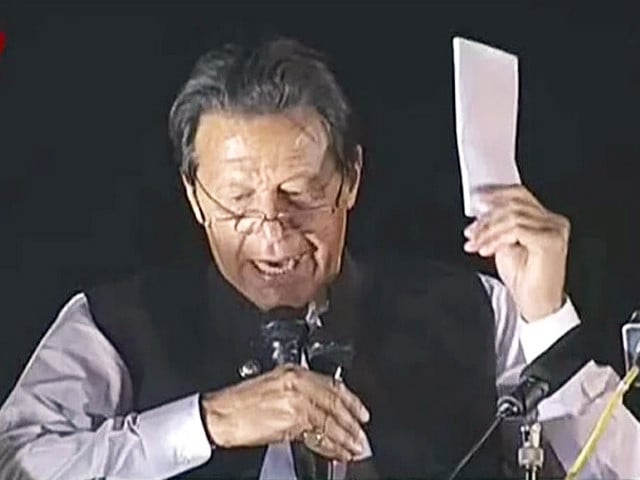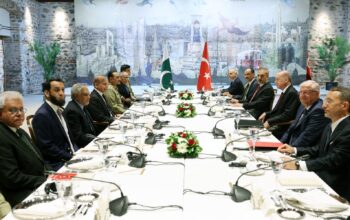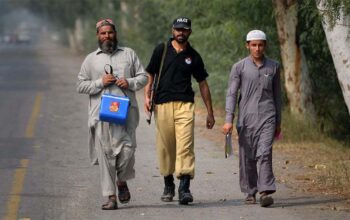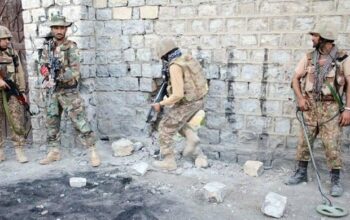By Staff Reporter
ISLAMABAD: A special court conducting the trial of former prime minister Imran Khan and ex-foreign minister Shah Mehmood Qureshi on charges of leaking classified information has ordered a media blackout of its proceedings, barring journalists from reporting any details of the case.
The court, established under the Official Secrets Act, accepted the prosecution’s request on Thursday to exclude the public from the hearing of the cipher case, in which Khan and Qureshi are accused of misusing a secret diplomatic document that allegedly threatened Khan’s government in 2022.
The judge, Abual Hasnat Mohammad Zulqarnain, issued a written order on Thursday that declared the trial would be held in-camera and prohibited print, electronic, and social media from publishing or broadcasting any information or evidence related to the case.
The order also restrained the family members of the accused from sharing any details with the media or on social platforms.
The judge said the order was necessary to protect national security and the integrity of the trial, which is being conducted under sections 5 and 9 of the Official Secrets Act. These sections deal with the unauthorized disclosure and communication of official secrets that are prejudicial to the safety or interests of the state.
The prosecution had moved an application under section 14 of the same act, which allows the court to exclude the public from the hearing of a case registered under the act, but the passing of the sentence will, in any case, take place in public.
The court had framed charges against Khan and Qureshi a day earlier, but they did not sign the charge sheet, denying the allegations and pleading not guilty. The court will now start recording the statements of witnesses, according to special prosecutor Raja Rizwan Abbasi, who spoke to reporters after the hearing.
Abbasi said the trial would be conducted behind closed doors from now on, and that the media should respect the court’s order and refrain from reporting any unauthorized information.
Barrister Taimur Malik, the counsel for Qureshi, told reporters that he would challenge the media blackout order in the high court, as it violated the right to a fair and public trial.
Khan’s sister, Aleema Khan, told journalists that her nephews, who live in the United Kingdom, would file a lawsuit in UK courts to ensure a fair trial for their father, who they believed was being persecuted for political reasons.
Meanwhile, another court in Islamabad handed over the custody of Khan to the National Accountability Bureau (NAB), the anti-corruption watchdog, in a separate case related to the illegal use of state gifts and vehicles.
NAB had arrested Khan on Wednesday, after he appeared before the special court in the cipher case.
NAB’s prosecutor sought a seven-day physical remand of Khan, but the accountability court judge granted only a two-day remand and adjourned the case until Saturday.
The prosecutor said NAB had evidence that Khan had received expensive gifts and cars from foreign dignitaries and had not deposited them in the treasury, as required by law.
Khan’s lawyer, Babar Awan, argued that the arrest was unlawful and politically motivated, and that NAB had no jurisdiction to investigate the matter.
He said Khan had declared all his assets and had not misused any state resources.
Khan, who served as the prime minister of Pakistan from 2018 to 2021, was ousted by a vote of no-confidence in the parliament, after his party, Pakistan Tehreek-e-Insaf (PTI), lost its majority. He has since been facing multiple cases of corruption and treason, which he claims are part of a conspiracy to silence him and his supporters.
Copyright © 2021 Independent Pakistan | All rights reserved




